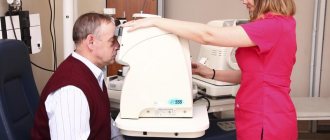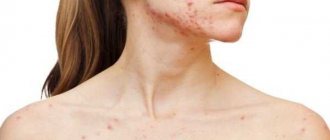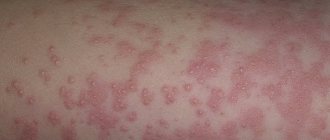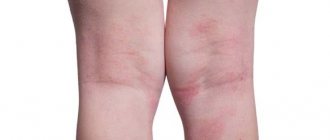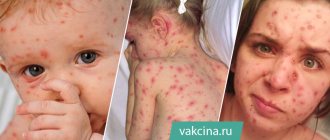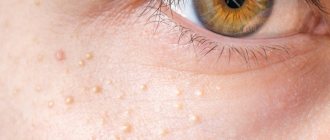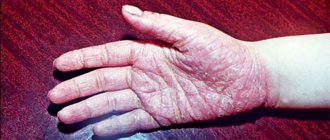Psoriasis is a fairly common skin pathology of a non-infectious nature. It is diagnosed in men and women of different ages, and it is known that up to 4% of the world's population suffers from the pathology. The exact causes have not yet been studied, and a complete cure is impossible. However, thanks to modern medicine, the manifestations of psoriasis can be minimized.
What is psoriasis: causes
Psoriasis is a skin disease that manifests itself as red spots all over the body or in certain parts. It occurs at all ages, but most often in the period 16-22 years and over 60 years.
Modern medicine still cannot name the exact reasons for the development of psoriasis - relevant research is still being carried out today. Based on preliminary results, we can say that the disease may be infectious or hereditary in nature. The influence of the nervous system is also possible.
The provoking factors in this case are:
- hormonal disorders;
- various diseases of the nervous system;
- metabolic disorders;
- immunity disorders;
- constant stress;
- burns from exposure to the sun;
- skin injuries.
It is most likely that the development of psoriasis is associated with several factors. Not least important is violation of the rules of a healthy lifestyle (regular nutrition, adequate sleep, rest, etc.). It is noted that with alcohol abuse, the chances of developing pathology increase 5 times. Obesity and smoking, as well as systematic use of certain medications, also have a negative impact.
At the same time, we can say for sure that psoriasis is inherited. If at least one parent has it, the probability of the child inheriting it is 25%, and if both parents are sick, then more than 60%.
PUVA therapy and spa treatment for psoriasis
I was prescribed PUVA therapy. What is the chance that treatment will help me get rid of psoriasis?
This method of therapy, when the patient receives a photosensitizer that increases the sensitivity of his skin to ultraviolet rays, is not recognized by all dermatologists, since the treatment method can cause mutation of oncogenes. And if the patient had family members who suffered from cancer, there is a risk that PUVA therapy will provoke cancer in him too. In addition, there is another side effect - PUVA therapy inhibits the hematopoietic system.
I heard from other patients that for psoriasis, treatment at the Dead Sea resorts is effective. What explains the salt water effect?
The uniqueness of Israel is that the sun there is more gentle and soft due to the fact that the Dead Sea coast is the lowest landmass on Earth. But salt water itself, as well as baths of celandine and string, which traditional medicine actively recommends, will not help with psoriasis. On the contrary, they interfere with the treatment and restoration of the skin barrier at the site of psoriatic plaques. Among my patients there were those who recklessly, at the moment of exacerbation of the disease, went to the Dead Sea, and, as they say, from winter to summer. Such trips only exacerbated the problem.
Why do doctors prescribe such different treatments for psoriasis?
Recommendations for treatment are not similar, because there are different forms of psoriasis: regular (plaque), exudative, pustular, palmoplantar, inverse (“upside down”), seborrheic, psoriatic erythroderma, psoriatic arthritis... In addition, the psoriatic process is differentiated by severity and prevalence.
At the first signs of psoriasis, sometimes it is enough to cure a chronic infection (often sore tonsils, an inflamed tooth). As I already said, stress is very dangerous for the patient, so patients need sedatives.
If the patient has less than 10% of the skin affected, the dermatologist will try to eliminate provoking factors and carry out the necessary external treatment. If the psoriasis is extensive (at least 20% of the skin is involved in the process) or the patient already has psoriatic arthritis, psoriatic erythroderma, exudative and pustular psoriasis, the doctor will prescribe systemic immunosuppressive agents: methotrexate, cyclosporine A, synthetic retinoids, various options for phototherapy.
And the most effective remedy is genetically engineered monoclonal antibodies, drugs that most accurately inhibit some anti-inflammatory cytokines. Biological drugs have a powerful therapeutic and very selective effect on the main parts of the mechanism of psoriasis development, but have minimal impact on the normal mechanisms of the immune response. After using drugs containing monoclonal antibodies in treatment, patients quickly experience stable remission. And even with long-term use, the activity of the drugs does not decrease. Another advantage of the new drugs is that they can stop the development of psoriatic arthritis.
In order to select individual therapy, the patient must be regularly observed by a specialist. Additionally, you can get a second opinion from a dermatologist online
What does psoriasis look like: symptoms
Psoriasis clearly manifests itself with external symptoms, which depend on the stage of development of the disease. Initially, red spots form on the body (often in the scalp area). Over time, they become covered with scales, which begin to peel off. Small pustules and a rash may appear in these same places.
During an exacerbation, the following symptoms intensify:
- severe itching;
- burning sensation;
- cracks in the skin;
- feeling of skin tightness;
- joints swell, movements become painful;
- nails crumble and peel off;
- cracks form on the fingertips;
- The gums in the mouth become inflamed.
Is skin psoriasis contagious?
The nature of the disease is autoimmune. That is, the answer to the question of whether skin psoriasis is contagious and dangerous to others is negative. It is impossible to transmit psoriasis from another person in the following ways:
- Airborne;
- Sexual;
- Through blood;
- Household items and dishes;
- Through touch.
The occurrence and development of this disease depends on the body's resources. It is provoked by improper functioning and division of cells. With such a violation, they change their structure and the structure of the tissue they form. The most common causes are considered to be heredity. However, there is a version that the catalyst in this case is viral diseases that are not related to dermatology, but undermine the immune system.
Is psoriasis contagious? A question that worries both the patients themselves and the people around them. To understand whether the danger of infection is worth waiting for, you need to understand in more detail the characteristics of the disease.
Another reason to think about how psoriasis is transmitted, whether it is contagious or not to others, is the connection with allergies, namely its consequence.
There are several other versions of the appearance of psoriasis:
- Immunity, weak from birth;
- Nervous breakdown, psychological trauma, frequent stress over a long period of time;
- Metabolic disease;
- Diabetes;
- Disruption of the endocrine system;
- Bad habits;
- Poor nutrition.
In what cases do they consult a doctor: diagnosis
To diagnose the disease, contact a dermatologist. It is better to do this when the first signs of the disease appear. Moreover, you should not diagnose it yourself - there is a high probability of making a mistake. Moreover, you should not self-medicate, including using hormonal drugs, which can be harmful to health.
During the appointment, the doctor analyzes complaints and conducts a visual examination, prescribes blood tests, urine tests and, if necessary, other procedures (for example, taking a fragment of the skin - biopsy). No special preparation is required to visit a dermatologist. It is only important to ensure that the skin is clean and not to use ointments the day before.
Why are people afraid of getting psoriasis?
Peeling silvery plaques on exposed skin or psoriasis-affected nails are visible to others.
People are programmed to experience fear of phenomena that are incomprehensible and unknown to them, that is, of things that could potentially threaten their life or health. This fear was acquired during evolution.
In addition to this fear “enshrined in the genes,” parents teach us to avoid encountering potential dangers. For example, do not cross the road at a red light or, if we talk about infections, wash your hands after going outside and before eating.
People may also be confused by another name for psoriasis: lichen planus. The word “lichen” itself may be associated with a contagious disease. After all, for example, ringworm is also lichen, but, unlike psoriasis, a non-infectious disease, it is a fungal infection that children usually catch from street kittens or puppies.
Is it possible to cure psoriasis: modern methods
Unfortunately, it is impossible to completely get rid of psoriasis. But modern treatment methods can significantly reduce the manifestation of symptoms, avoid the exacerbation stage, and reduce the likelihood of its occurrence to a minimum. Therapy is usually complex. It is developed by a dermatologist taking into account the patient’s age, gender, concomitant diseases and other factors.
Typically, drugs such as corticosteroid ointments and non-hormonal agents are used. Certain procedures are also indicated: plasmapheresis and physiotherapy (ultraviolet irradiation).
During treatment, it is necessary to adjust your lifestyle and establish a balanced, nutritious diet. It is noted that psoriasis in the head, legs and elbows can be controlled through a certain diet. The menu must include products that create an alkaline environment:
- apples;
- melons;
- bananas;
- citrus.
Moreover, they need to be consumed on their own, i.e. as a separate meal. On the other hand, foods with an acidic environment also help, for example:
- meat of different types;
- legumes;
- cereals;
- dairy cream;
- sugar (in moderation).
The menu also regularly includes such healthy products as:
- fresh vegetables (green;
- milk;
- fish;
- kefir;
- buckwheat;
- broccoli;
- lamb and others.
Where is the truth, or why the results of different GWAS often contradict each other?
It is too early to draw definitive conclusions on the genetic basis of psoriasis, despite the fact that many genes associated with this disease have been found using GWAS. In fact, the results of many GWAS are subject to inconsistencies and limitations imposed by both the study subject and the study methods.
First of all, psoriasis is a very complex, complex disease characterized by significant phenotypic heterogeneity. Many mutually influencing genetic and non-genetic factors take part in its development. It would be unreasonable to expect DNA reading to immediately cover all the blind spots in the study of psoriasis.
Many questions arise regarding the designs of the works themselves. For example, most works are retrospective, that is, they analyze the results of previous studies and source material collected by other authors. In addition, the number of patient participants in many publications is quite small. Different criteria for the success of treatment are also used. Finally, sometimes in the same study, representatives of different ethnic groups or patients taking different medications are mixed - of course, this also affects the result of the genetic analysis [71]. Let's hope that large-scale studies conducted in homogeneous populations will appear in the near future.
However, there is another explanation for why analysis of primary genetic material does not provide all the answers: epigenetics. This is precisely the reason that of two monozygotic twins (with the same genotypes), psoriasis sometimes occurs in only one. Due to external influences, gene expression can change, and there are many tools for such regulation: DNA methylation, chemical modifications of histones, microRNAs... Among the epigenetic factors responsible for the pathogenesis and/or progression of psoriasis are environmental conditions, exposure to various infectious agents (especially streptococci group A), psychological stress, smoking, obesity, excessive alcohol consumption, use of a number of medications, including non-steroidal anti-inflammatory drugs and immunomodulators, and much more [8], [11], [22]. Exciting details of the influence of epigenetics on the development of psoriasis await you in the next article of the series!
Why were people afraid of getting psoriasis before?
Psoriasis and leprosy (leprosy) have been known to mankind since biblical times, and then psoriasis was confused with leprosy.
In the Old Testament in the Fourth Book of Kings (5:27) there is a direct reference to psoriasis, and it is called leprosy there: “Let the leprosy of Naaman come upon you and your descendants forever. And he came out from him, white with leprosy, like snow.” The word used is "tsaraat" which translates to leprosy and was also used to denote punishment or "ritual uncleanness".
The biblical prophet Elisha refuses the gifts of the Syrian commander Naaman. Naaman offers gifts in gratitude for getting rid of psoriasis, then considered leprosy.
The ancient Egyptians and neighboring peoples also often erroneously used the word “leprosy” to refer to psoriasis.
The famous ancient Greek physician and philosopher Hippocrates grouped dry scaly skin lesions under the term “lopoi,” which likely referred to both psoriasis and leprosy.
At the beginning of our era, the ancient Roman physician and philosopher Gallen first used the term “psoriasis vulgaris”, derived from the Greek “psora” (itching), to refer to a skin disease. To treat it, Gallen prescribed arsenic.
But the confusion between psoriasis and leprosy continued. Patients with psoriasis continued to be treated in various cruel ways, expelled from the church and community, and even burned at the stake by order of the French King Philip V in the 14th century for far-fetched reasons.
This continued until the Renaissance.
Psoriasis as a separate disease was first described by the English physician and founder of dermatology Robert Willan at the end of the 18th century. He described two forms of the disease: Leprosa Graecorum - with a predominance of scaly plaques, and Psora Leprosa - a more active form of the disease with a predominance of rash. And again I used the word “leprosy” in the title...
Ferdinand Karl Franz Schwarzmann Ritter von Hebra is the famous Austrian dermatologist who gave psoriasis its modern name.
Psoriasis and leprosy continued to be confused until 1841, when the Austrian physician Ferdinand von Hebra gave the modern name of the disease - psoriasis, psoriasis, and the word "leprosy" (leprosy) left the name of the disease forever.
